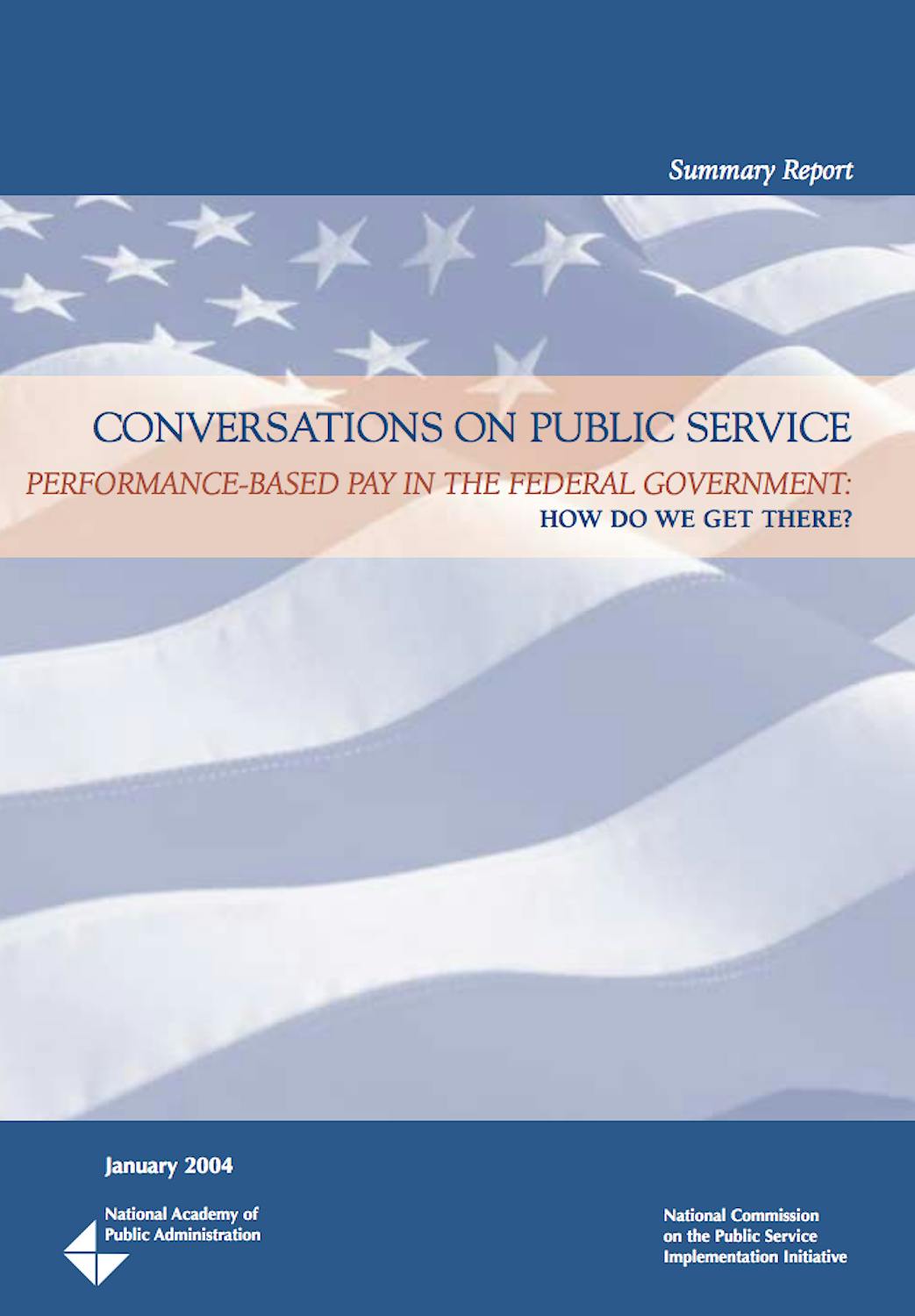
Conversations on Public Service Performance-Based Pay in the Federal Government: How Do We Get There?
Against a background of intensified interest in Federal adoption of performance-based pay systems, on October 21, 2003, the Academy partnered with the Brooking Institution's National Commission on the Public Service Implementation Initiative to sponsor a forum entitled Performance-Based Pay in the Federal Government: How Do We Get There?
The purpose of this forum was to develop and articulate a set of guidelines and options that would be useful to policymakers and their advisors as they considered the issue of performance-based pay. Participants in the forum included leading federal personnel policymakers and human resource management experts who provided insight from their experience with performance-based pay in the public and private sectors. Forum participants recognized that missions, employee pay and skill levels differed widely within and among agencies. For this reason, they focused instead on general principles learned from past and current efforts to implement performance-based pay in the federal government.
Click the button below to view the View Study Report.
View ReportKey Findings
Despite the recognition that implementing pay reform is difficult, forum panelists expressed optimism that extending performance-based pay across the federal government was possible and would add value. During the forum, panelsits discussed several different implementation approaches. By the end of the discussion, the Panel had come to consensus around a number of key points that the public sector should keep in mind as the implement performance-based pay in their agencies.
Recommendations
Despite the discussion of various approaches to implementation, forum participants identified items of consensus. There was agreement that implementing performance-based pay in the federal government:
- will involve reform of the existing 15-grade structure, possibly by replacing it with a broadband pay system;
- will take time (GAO has spent 14-15 years laying the groundwork and implementing its system);
- is complicated (it is difficult to make meaningful distinctions in evaluating performance once you get below the top performers in an organization);
- involves aligning organizational goals with individual performance;
- will require a culture change;
- requires adequate funding in order to be fully effective.
